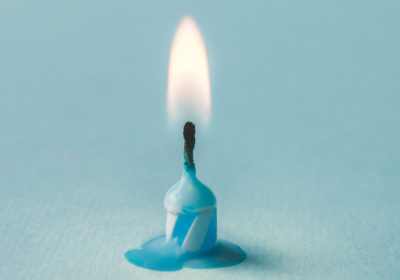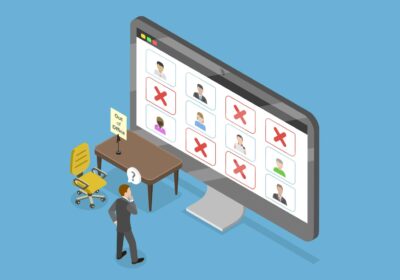
- Author: Nina Hendy
- Posted: August 16, 2022
Work isn’t everything, heart attack survivor says
Explained first-hand: Why you should put your own health above the health of your business
Life as a CFO or finance leader can be pretty hectic, and the cumulative effect of this over 20 years working at this pace can have an impact on your health.
Ask Jerry Pannu, who lives in Caroline Springs in Melbourne. He’s the finance manager for Annexa, an ERP solution provider that specialises in design, implementation and support of cloud technology for business.
Last year, he had a heart attack. There were no warning signs. It was completely out of the blue.
He can’t remember all the details from that day. But his wife tells him that while in bed asleep at 4am, he started experiencing huge chest pain and a squeezing feeling against his rib cage.
“I wasn’t particularly coherent, apparently. My wife called the ambulance, who arrived shortly after,” Jerry says.
He was rushed into hospital and underwent an emergency procedure to insert two stents to remove blockages in his heart. Later, a further four stents were inserted to clear more blockages during his stay in hospital.
It was a bolt out of the blue. He always played a lot of sport, including soccer, hockey and cricket over the years. “I don’t smoke or drink much. I have always tried to stay in shape.”
Jerry has since learned that he had suffered from what’s known as a widow-maker heart attack, which occurs when the left anterior descending artery is totally or almost completed blocked.
The critical blockage in the artery stops, usually a blood clot, stops all the blood flow to the left side of the heart, causing the heart to stop beating normally. Doctors told him that the survival rate is 12 per cent for this particular type of heart attack. He was in hospital for a week post-surgery, followed by weeks of recovery at home.
Recovery was rough. Movement was restricted to such an extent that he wasn’t even allowed to lift a carton of milk from the fridge. Rehabilitation exercise slowly built up his strength over time. It was physically debilitating, but also mentally tough, he says.
The silent killer
Higher than average cholesterol levels may have contributed the heart attack.
“I’m not a large person, but what I learned after the heart attack was that my cholesterol deposits in my arteries were building up over the years. The other aspect was the stress levels I was experiencing at work, which was also taking its toll on my overall health. It’s a very common theme, according to the hospital staff, both in men and women,” he says.
The health scare has completely changed out outlook on life. His LinkedIn profile states that he’s part of the 12 per cent club, referring to the survival rates on the heart attack he experienced.

“12% Club Member”
Now, the father of two is working hard not to make the same mistakes. “I’m not going through that process again. I’m just not prepared to kill myself over work. Looking after yourself is far more important than work,” he says.
The concept of 24 hour connectivity to work is not only unrealistic, but also unhealthy, he says.
He admits he’s lost a lot of sleep due to work over the years, worrying about work. “The expectation of being at someone’s beck and call at every hour of the day is complete madness,” he says.
“The emphasis on accuracy that becomes part of everyday life for finance professionals creates an artificial feeling that we all need to be perfectionists, which is felt far more than other departments within a company,” he says.
This perfectionist manta and the ‘close enough is good enough’ attitude is to the detriment of people’s health and mental wellbeing, he says.
He feels lucky that the current company he’s working for have been so supportive, and he feels that Annexa has embraced a culture that has his back, which is extended to all staff. This contributes to a less stressed work environment, he says.
Making a change
He’s made a few changes in his life, including not working as many hours a day, and being sure to take holidays. “We also get away for weekends more often, and are much better at doing things on the fly, which I never used to do. We’re really just living for the day,” he says.
He’s speaking out because he’s heard multiple stories since his health scare of others in the finance hot seat working their fingers to the bone. Just like he used to. “I’ve met so many burnt out finance professionals who work incredibly hard in their role, who don’t realise that these everyday pressures build up over time.”
A lack of sleep and worrying can have a huge impact on your health, he says.
“Everyone has worries in their life, but when it’s impacting on the quality of your sleep, it’s got to be dealt with.”
He urged others to think twice about the hours they work. “Sending off emails at 2am because you’re concerned about work can have a knock-on effect to the receiver, who wakes up to an apparent urgent email that’s arrived in the middle of the night,” he says.
Around 430,000 Australians have a heart attack at some point in their lives, while 57,000 suffer a heart attack a year. Around 179 people are hospitalised due to heart failure per day, equating to one person every eight minutes, according to the Heart Foundation.
Similar numbers of males and females are admitted to hospital for heart failure.
While companies have realised that the health of their employees is more important than ever during the pandemic, the impact of the workload they’re putting on their people needs to also be considered. “I’ve got a lot more empathy for others since this incident. I’m much more of a human being in the way I go about my business.
Heart attack symptoms can be similar to those for angina, with the addition of all or any of the following:
- Dull pain, chest tightness or discomfort that does not go away.
- Jaw and neck pain
- Severe pain that is often described as crushing
- A squeezing or choking sensation
- Nausea or feeling sick in the stomach
- Fainting and sweating
- Pain in the shoulder or arms
- Similar sensations to heart burn
- Sudden difficulty breathing
- Sudden overwhelming fatigue or weakness
- Flu-like symptoms
If you or someone else experiences any combination of these symptoms for more than a few minutes, immediately call 000 for an ambulance. Source:https://www.heartresearch.com.au/heart-attack/






